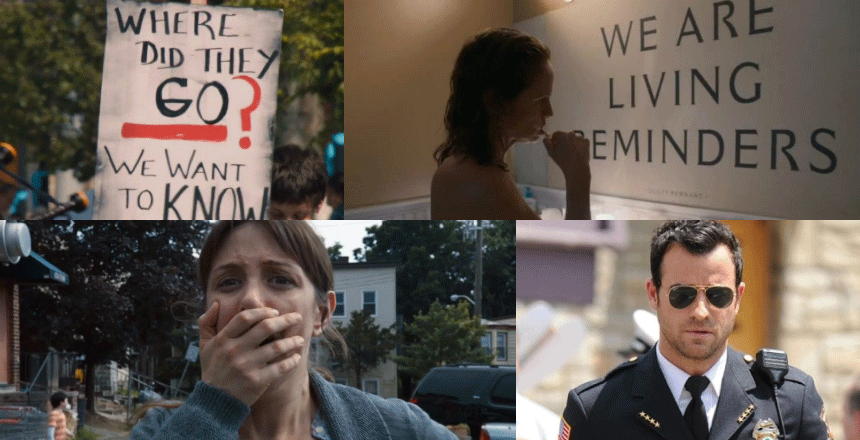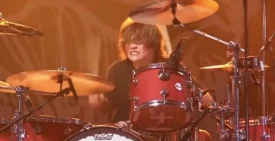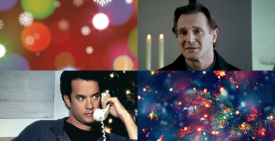On October 14, 2% of the world’s population vanishes, leaving 140 million people missing. That’s the premise of the new HBO series “The Leftovers,” which focuses on how Mapleton, a fictional Upstate New York town, is dealing with the aftermath of the disappearance, three years on.
The show — based on a Tom Perrotta novel of the same name and starring Justin Theroux as Mapleton’s police chief — premiered Sunday night. In the pilot, the town gathers to commemorate the third anniversary of the disappearance. The event turns bloody and combative when a cult known as The Guilty Remnant stages a protest. The Remnant seems to believe the mass disappearance was The Rapture and thus, there is no point in moving on, when there is nothing left to move on for.
But theirs is one of many responses to the disaster: Some turn to careless, deviant behavior: The chief’s teenage daughter turns to underage drinking and dangerous sex games; one man chases down and shoots ownerless dogs. Elsewhere, a mysterious prophet who offers his followers a reprieve from their burden or abandonment suggests it was all for a greater, soon-to-be-revealed purpose. But really, no one knows what happened. Not self-proclaimed prophets. Not religious clerics. Not scientists.
And that’s at the crux of this show. Not knowing.
Perrotta, who collaborated with Damon Lindelof (of “Lost”) on the HBO series, said the idea of The Rapture was an inspiration for the book. In a public radio interview following the 2011 publication of “The Leftovers,” he explained:
The more I thought about it, the more it seemed like a really rich metaphor for thinking about the way that we react to, as you say, incomprehensible events, horrible events, things that we can’t completely understand. There are these dueling impulses, you know, to remember and bear witness and to forget and move on. And this was the scenario that I chose to explore those impulses.
As “The Leftovers” accurately depicts, the impulse to bear witness and the impulse to move on are both hindered in the case of a scenario when the disaster is so extreme, when it touches so many, and when there is, alas, no explanation.
Already, finding solace from grief on an individual level is a difficult task. Ask anyone who’s lost a loved one: The act of moving on can be a daily challenge that doesn’t always get easier with time. And grief is important. When people lose a loved one, those left behind must live “in the sad” in order to move forward eventually.
It will be interesting to see — as the storyline unfolds — if it explores the hierarchy of grief. How do others size up the pain of the person who has lost multiple family members vs. that of someone who has lost a child vs. that of someone who has lost a parent vs. that of someone who has lost friends vs. that of someone who has lost a family member to The Guilty Remnant?
At the event honoring those who disappeared on October 14, a woman who lost three members of her family is introduced by the town’s mayor as someone who was “hit particularly hard.” It is the only instance in the episode where grief is addressed as something that is relative, that someone has it worse than someone else.
“The Leftovers” is not a show about The Rapture. It is a show about grief. Not simply how we grieve and how we recover from loss, but if we are able to recover at all. How do we go on when we don’t know what happened or why? What do we create — and destroy — in that vacuum? And how do we learn to live with the mystery of it all?
Watch a trailer for “The Leftovers”:
Annie Stamell is a television writer, blogger and social media consultant living in Los Angeles, by way of New England. Her nickname is Stamos but she’s not related to John. You can learn more about her here and follow her on Twitter, Tumblr, Instagram








